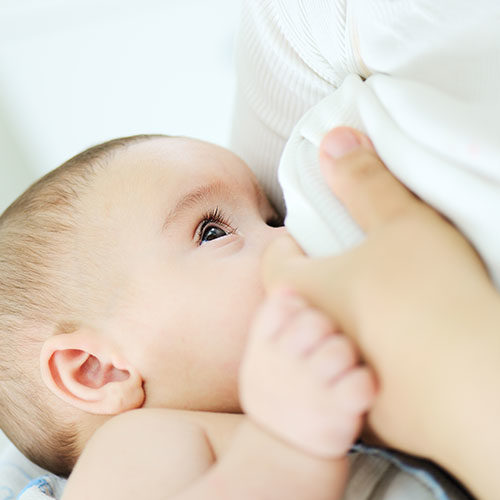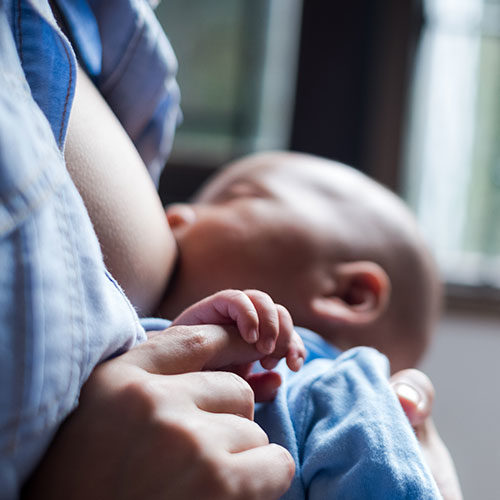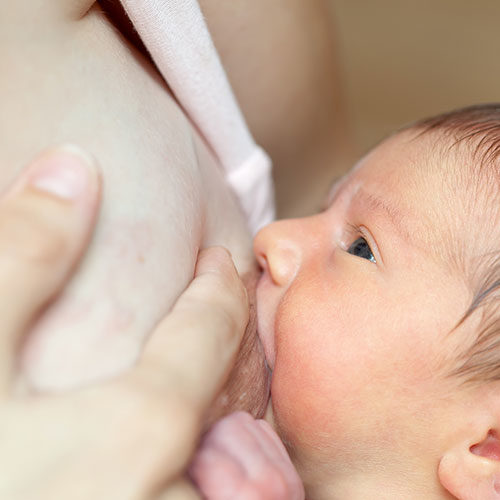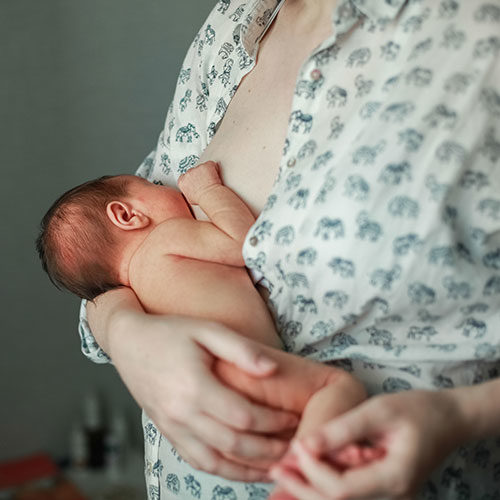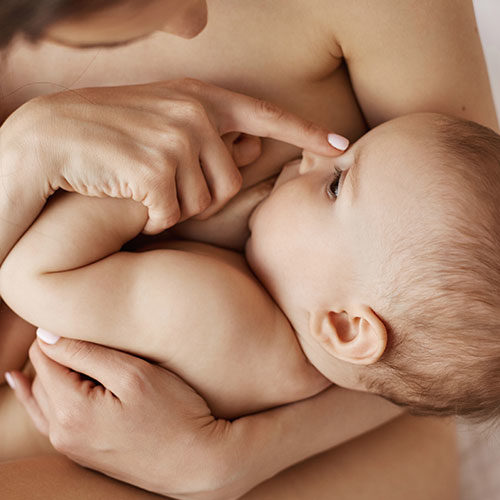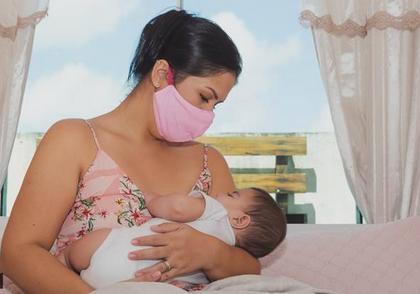I have been detected as COVID 19 Positive - Is it safe to breastfeed my child?
Covid19 pandemic has impacted our lives in every way possible. The aspect of breastfeeding is not an exception. It is important to understand how breastfeeding can help in this era.
Recommendations by Leading Health Institutions :
The World Health Organisation (WHO) recommends breastfeeding to be initiated and/or continued as usual in all cases; including those wherein, a mother might be a suspected or confirmed case of Covid19; while following some safety guidelines.
Unicef advises all mothers to continue breastfeeding while practising good hygiene. The 3 Ws of Wearing a mask, Washing hands with soap before touching the baby and Wiping surfaces to disinfect them regularly are suggested.
WHO recommendations:
“WHO recommends that mothers with suspected or confirmed COVID-19 should be encouraged to initiate or continue to breastfeed.”
“Mothers should be counselled that the benefits of breastfeeding substantially outweigh the potential risks for transmission.”
“Mother and infant should be enabled to remain together while rooming-in throughout the day and night and to practice skin-to-skin contact, including kangaroo mother care, especially immediately after birth and during the establishment of breastfeeding, whether they or their infants have suspected or confirmed COVID-19.”
Source – https://www.who.int/news-room/commentaries/detail/breastfeeding-and-covid-19
Can the transmission of covid19 virus take place through breast milk?
The WHO has maintained that “Transmission of active COVID-19 (the virus that can cause infection) through breast milk and breastfeeding has not been detected to date.” Therefore, there is no reason to avoid or stop breastfeeding even if the mother is a suspected or confirmed case of Covid19.
Recommended safety guidelines to be followed by a Covid19 positive mother while Breastfeeding :
WHO Safety Measures for Breastfeeding while being Covid19 positive:
- “Wash hands frequently with soap and water or use alcohol-based hand rub and especially before touching the baby.”
- “Wear a medical mask during any contact with the baby, including while feeding.”
- “Sneeze or cough into a tissue. Then dispose of it immediately and wash hands again.”
- “Routinely clean and disinfect surfaces that mothers have touched.”
Note – It is important to replace medical masks as soon as they become damp and dispose of them immediately. Masks should not be reused or touched in the front. WHO recommends breastfeeding to continue even if the mother does not have access to masks. Other safety guidelines can be followed.
Advantages of Breastfeeding during the Covid19 Pandemic :
- As for all illnesses, the antibodies the mother’s body generates to fight the covid19 infection can be passed onto the baby via breast milk. This can help prevent the baby from catching the infection or reduce the severity and duration of the disease.
- Breastfeeding is easier to continue even when the mother is experiencing moderate to severe symptoms as opposed to preparing and feeding breast milk substitutes.
- Breastfeeding may provide potential protection against asthma and other allergies. This can help prevent the Covid19 symptoms from taking a severe form in the baby if the baby catches the infection.
- Breastfeeding eliminates other possibilities of catching the virus to a great extent as it limits the baby’s majority of direct contact only to the mother.
- For toddlers and older kids, breastfeeding can work as an immunity booster in such times. Weaning is recommended to be postponed.
Risks of Discontinuing breastfeeding during the Covid19 Pandemic :
- The risks associated with giving infant formula milk are increased whenever home and community conditions are compromised.
- The potential antibodies and other immunity-boosting components of the breast milk are not received by the baby. This can lead to increased risk of the baby becoming ill.
- There could be an emotional trauma experienced by the baby if breastfeeding is interrupted.
- Risk of a drop in supply.
- Risk of reduction in protective immune factors contained in breastmilk.
- Latter challenges of undersupply, breast refusal, bottle preference and nipple confusion etc may be faced by the mother.
Very Importantly do note that if the baby needs to be admitted in the hospital, preferably mother should be admitted with the baby and should continue breastfeeding. If the baby is admitted without the mother, mother should express milk and send it for the baby.
Note – If interruption of breastfeeding is medically necessary, it is recommended to provide expressed breast milk to the baby by hand expressing or pumping.
Formula feeding or Combi-feeding during Covid19 Pandemic:
- Mothers who have exclusively formula-fed babies or who are combi-feeding need to take extra care during these times.
- It is especially important to follow the instructions on the packaging rigidly.
- Extra care should be taken in sterilising the bottles or its alternatives used for feeding.
- It is better if the baby is always fed by only one (and the same) person. This limits the baby’s exposure.
- All other safety guidelines for feeding the baby should be followed including wearing a mask, washing hands with soap and water before touching the baby and disinfecting the surfaces regularly.
References:
https://www.who.int/news-room/commentaries/detail/breastfeeding-and-covid-19
https://www.unicef.org/eap/breastfeeding-during-covid-19
https://www.llli.org/coronavirus/
https://kellymom.com/covid19/covid-19-summary/
Covid-19 Breastfeeding Medications
A mother who has tested positive for COVID-19 can continue breastfeeding even if she needs to begin taking medications. The benefits of continuing to breastfeed outweigh the risks of the small quantity of medications that will be passed on via breast milk to the baby.
The table below shows the alternatives for medications for which there aren’t enough studies done to prove that they are safe whilst the mother is breastfeeding.
This table has been extracted from this link.
Covid-19 Vaccination in India and Breastfeeding
It has been a dilemma for many breastfeeding women who reside in India whether to take the vaccination shot or not. We have tried to highlight diverse recommendations with the intention of enabling mothers to take an informed decision regarding the same.
The government of India has given a go ahead for lactating mothers to take the vaccination.
This is the link to their recommendation:
https://www.mohfw.gov.in/covid_vaccination/vaccination/faqs.html
A snapshot of the recommendation is as below:
The Federation of Obstetric and Gynaecological Societies of India (FOGSI) has issued a statement which states that pregnant and breastfeeding women should be allowed to take the vaccine whilst acknowledging that there is limited data on the same. More about their stance can be read here.
https://www.fogsi.org/covid-vaccination-for-pregnant-bf-women/
A snapshot of the recommendation is as below:
The vaccines being administered in India are Covishield and Covaxin. Covishield is a viral vector vaccine and Covaxin is an inactivated vaccine.
As per the Royal College of Obstetrics & Gynaecologists, “Although there is lack of safety data for these specific vaccinations in breastfeeding, there is no plausible mechanism by which any vaccine ingredient could pass to your baby through breast milk. You should therefore not stop breastfeeding in order to be vaccinated against COVID-19.”
Studies have shown that breast milk contains antibodies specific to COVID-19 when the mother is COVID-19 positive and for this reason, it is recommended that mothers delay weaning of the child during the pandemic.
Prominent health organizations from the world suggest that if a mother chooses to get vaccinated, there should be no need for her to discontinue breastfeeding since the benefits of continuing to breastfeed would outweigh the risks of discontinuing.
Please go through diverse recommendations and do your own research and make an informed decision after discussing risk/benefit with a healthcare provider before receiving a covid-19 vaccine.
Additional Information:
https://www.ncbi.nlm.nih.gov/pmc/articles/PMC7523143/
https://www.bfmed.org/abm-statement-considerations-for-covid-19-vaccination-in-lactation#
Covid Update 2022:
Wish to speak with a member of our team who is a certified lactation professional and also an experienced breastfeeding mother, click on this link.
Medical Advice Disclaimer
THIS WEBSITE DOES NOT PROVIDE MEDICAL ADVICE.
The information, including but not limited to, text, graphics, images and other material contained on this website are for informational purposes only. No material on this site is intended to be a substitute for professional medical advice, diagnosis or treatment. Always seek the advice of your physician or other qualified health care provider with any questions you may have regarding a medical condition or treatment before undertaking a new health care regimen, and never disregard professional medical advice or delay in seeking it because of something you have read on this website.
Disclaimer
We understand and acknowledge that parents and babies can be of various genders on a spectrum of LGBTQI+. Families come in diverse flavours. However, in our articles, for the sake of simplicity and convenience, we will be referring to the breastfeeding parent as the mother and using the female pronouns- ‘she’ and ‘her’ for babies. Babies can be nourished and nurtured in different ways and while we have used the terms breastfeeding and nursing, we recognize that parents can opt to chest feed or finger feed.
We don’t have conflicts of interest and declare, and we are compliant with the WHO code of marketing of breastmilk substitutes and the IMS act.
In case you find any information on this website that needs to be updated, please write to us at info@bsim.org.in

